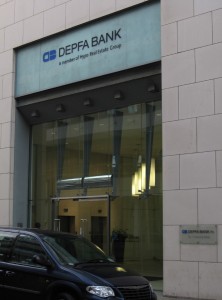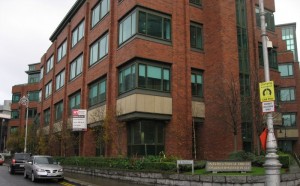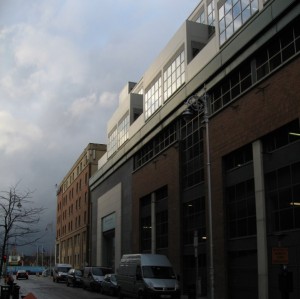I started listening to NPR’s Planet Money podcast to understand why The Reserve money market fund broke the buck. I’d read several recommendations for the Planet Money’s analysis, but the financial crisis didn’t shock me until a major money market fund failed to meet my lowest expectations.
My second shock came when I heard a collaborative investigation by NPR and the New York Times that focused entirely on one link in the world’s economic mesh: between Kenosha and Dublin. The story was compelling and illuminating, aside from its personal relevance. It was also riveting to hear how millions of dollars (on paper) moved in 2007, along with me, from the northernmost suburbs of Chicago to the city of Dublin.
CAUTION: Check with your physician before listening to Planet Money and/or listening to and/or reading any in-depth analysis of the current financial crisis. If you have more than 30% of your net worth invested in stocks, bonds, or other financial instruments, you may experience the following symptoms: faintness, shortness of breath, heart palpitations, and/or post-nasal drip. If you experience any of those symptoms, contact your mommy, because your broker ain't gonna answer the phone. Use common sense and do not learn about financial markets when you are coping with a long commute, a misbehaving rugrat, or other distressing matters.
Here’s a short summary: Several school boards in southern Wisconsin bought complex financial instruments from uninformed agents who assured them that the financial deals were relatively risk-free. Those school boards invested with Depfa Bank, a rapidly expanding entity which recently moved from Germany to Ireland for the tax advantage. 
Depfa and the Wisconsin school boards were each liable, in different ways, to cover corporate bonds if they lost a great deal of value. That just wasn’t supposed to happen, according to the school boards’ advisors and Depfa’s business model. A huge German bank, Hypo Real Estate bought Depfa just before it did. Now the German government is wondering whether Hypo is “too big to fail” as Depfa drags it down. And Wisconsin school boards have much, much less expertise to draw on as they contemplate the future.
I recommend Planet Money’s podcast as a way of getting your mind around the enormity of this financial crisis. Here are two links to get you started. The first is to the page where you can download the podcast or listen to it online. The second is to one of the companion pieces in the New York Times.
- Planet Money: A Tale of Intertwined Misery
- NYT: From Midwest to M.T.A., Pain From Global Gamble
There are links from each of those two pages to even more articles and audio broadcasts, if you really want to hear the gory details. As for myself, all I can offer are some photos of the Depfa offices in Dublin. (Apparently, neither news organization had the wherewithal to hire a photographer here.) They are what you’d expect from a company that exists mostly on paper.
 Hypo Real Estate lists this building as its official address, but there are no signs mentioning the company. The men in the lobby didn’t look inviting, and I wasn’t in a Bugle P.I. kind of mood.
Hypo Real Estate lists this building as its official address, but there are no signs mentioning the company. The men in the lobby didn’t look inviting, and I wasn’t in a Bugle P.I. kind of mood.The day Obama was elected president, a friend called to say, “It’s safe to come back now!” I’m not so sure. Then again, when it comes to high finance, there’s no place to hide.
